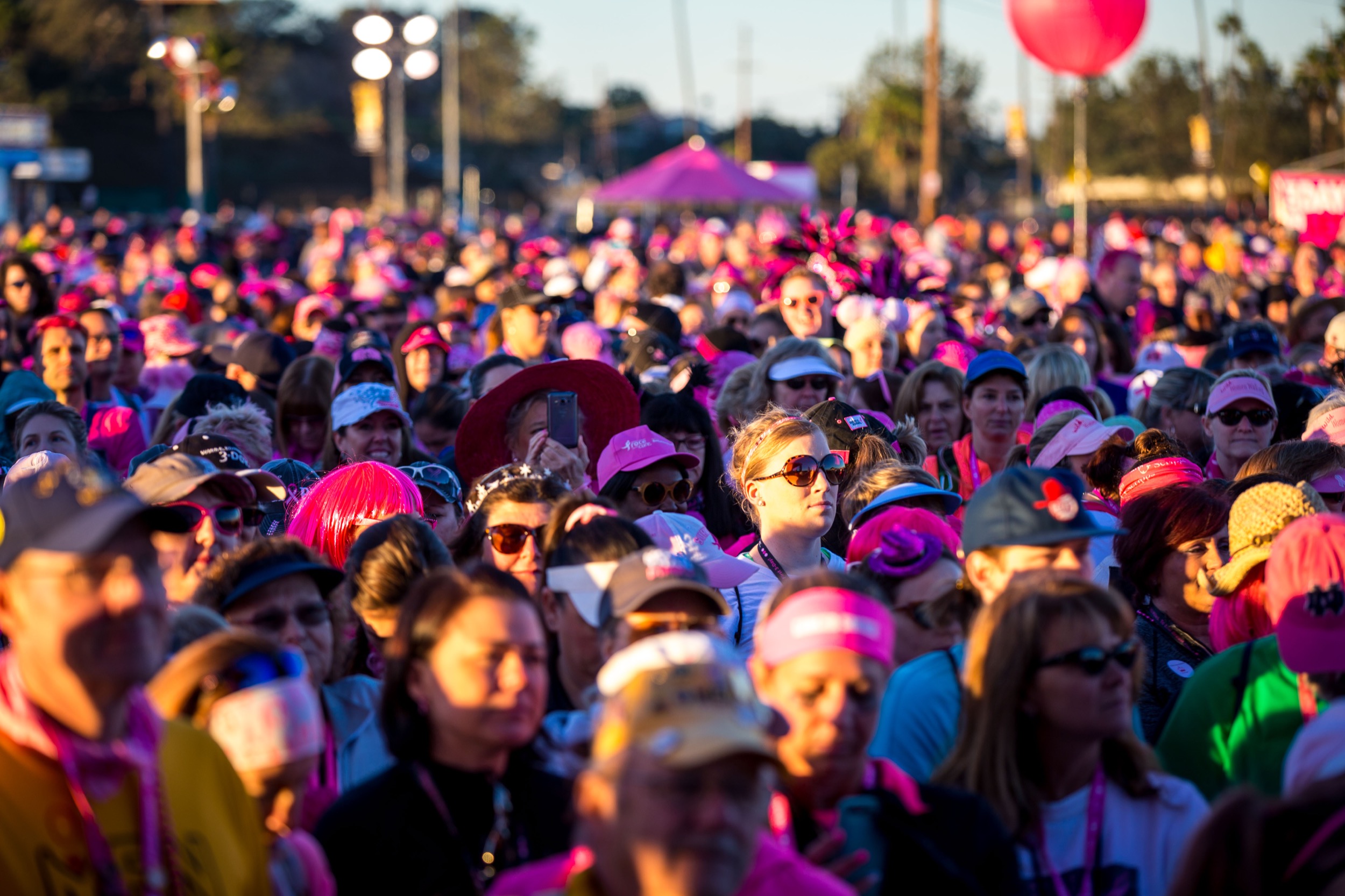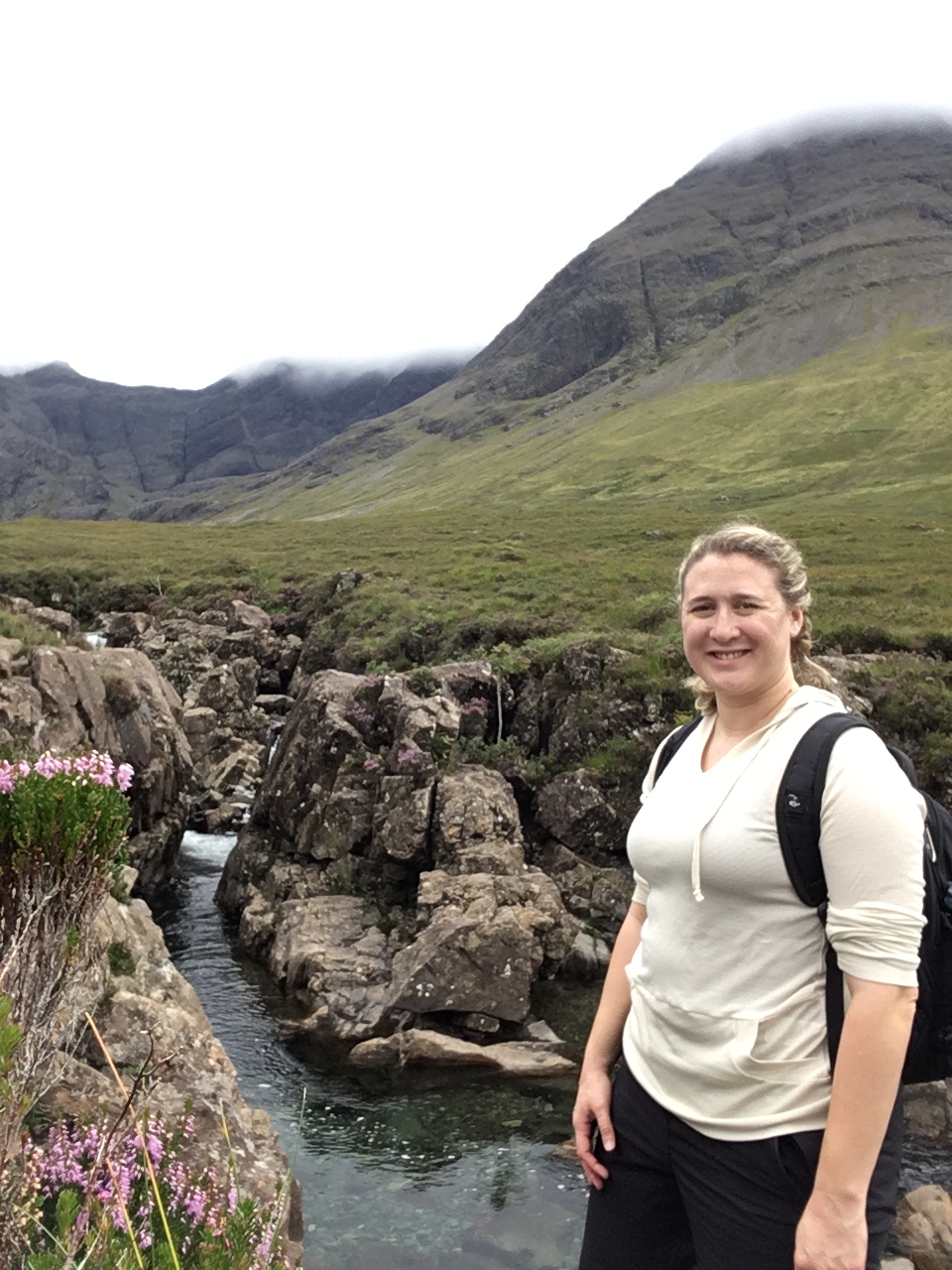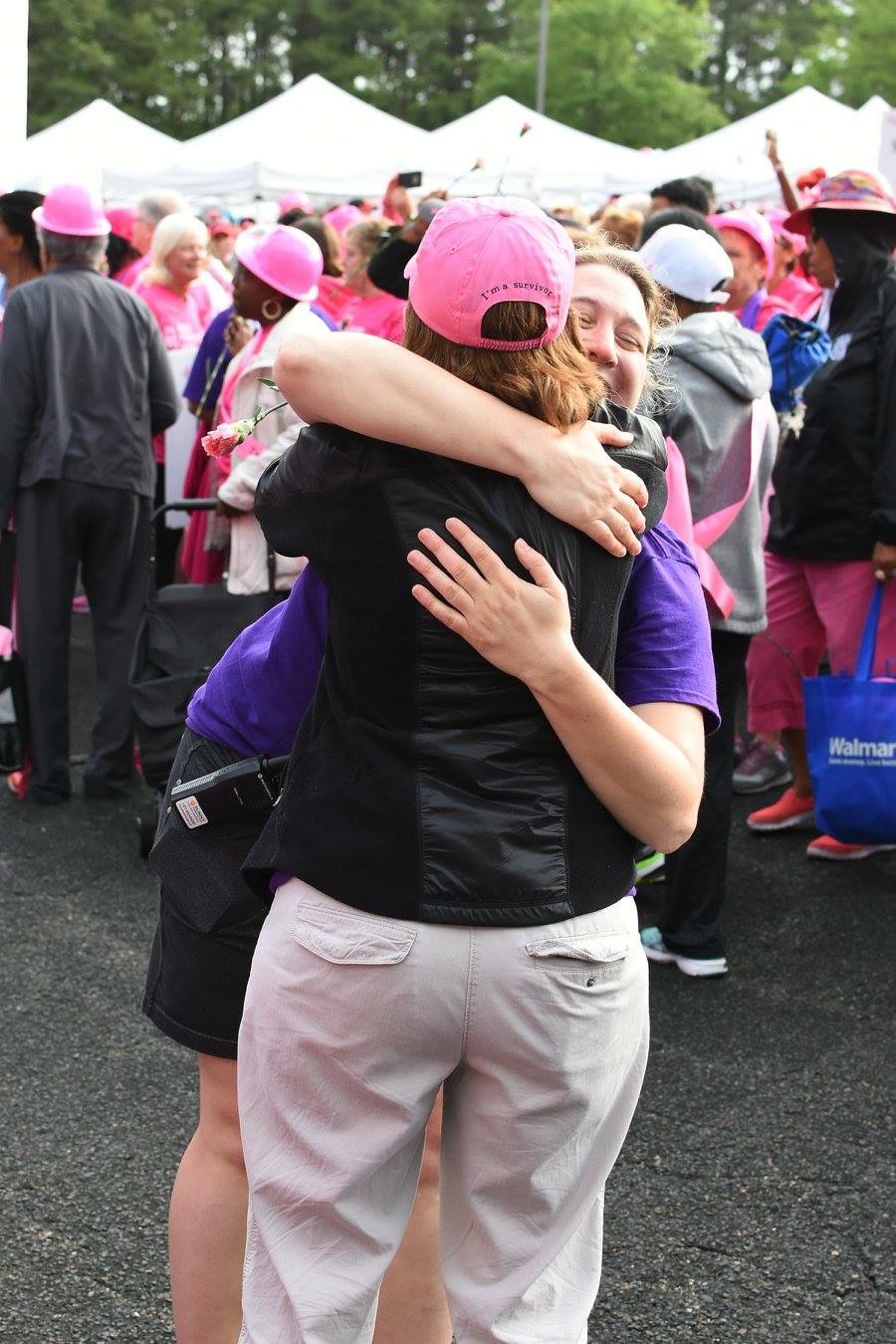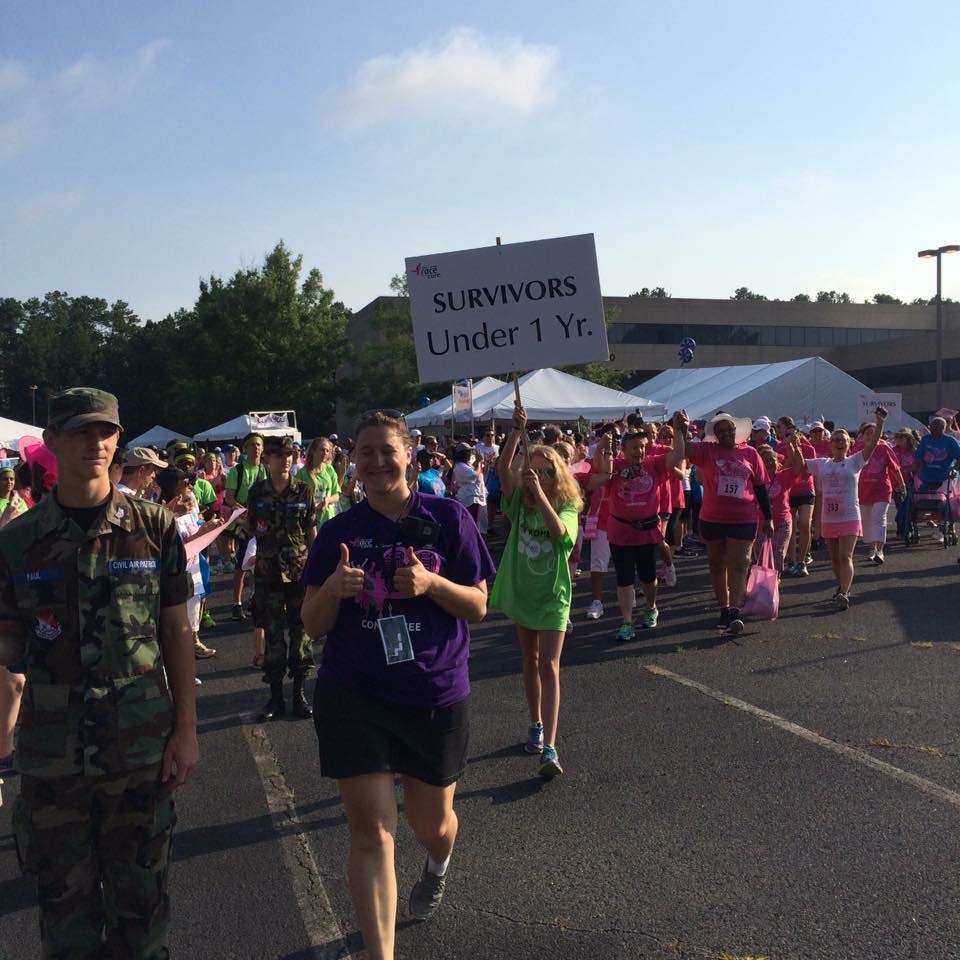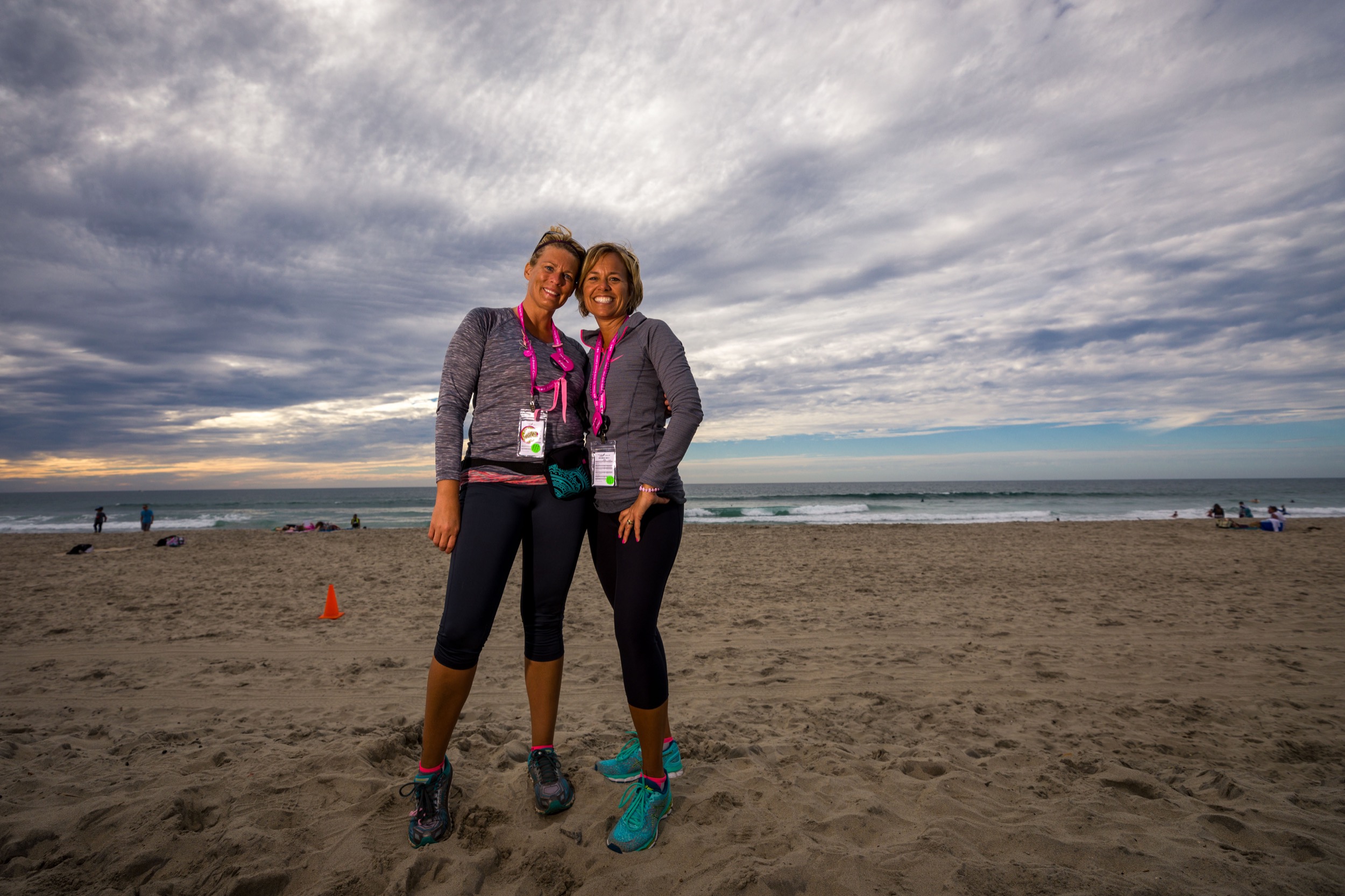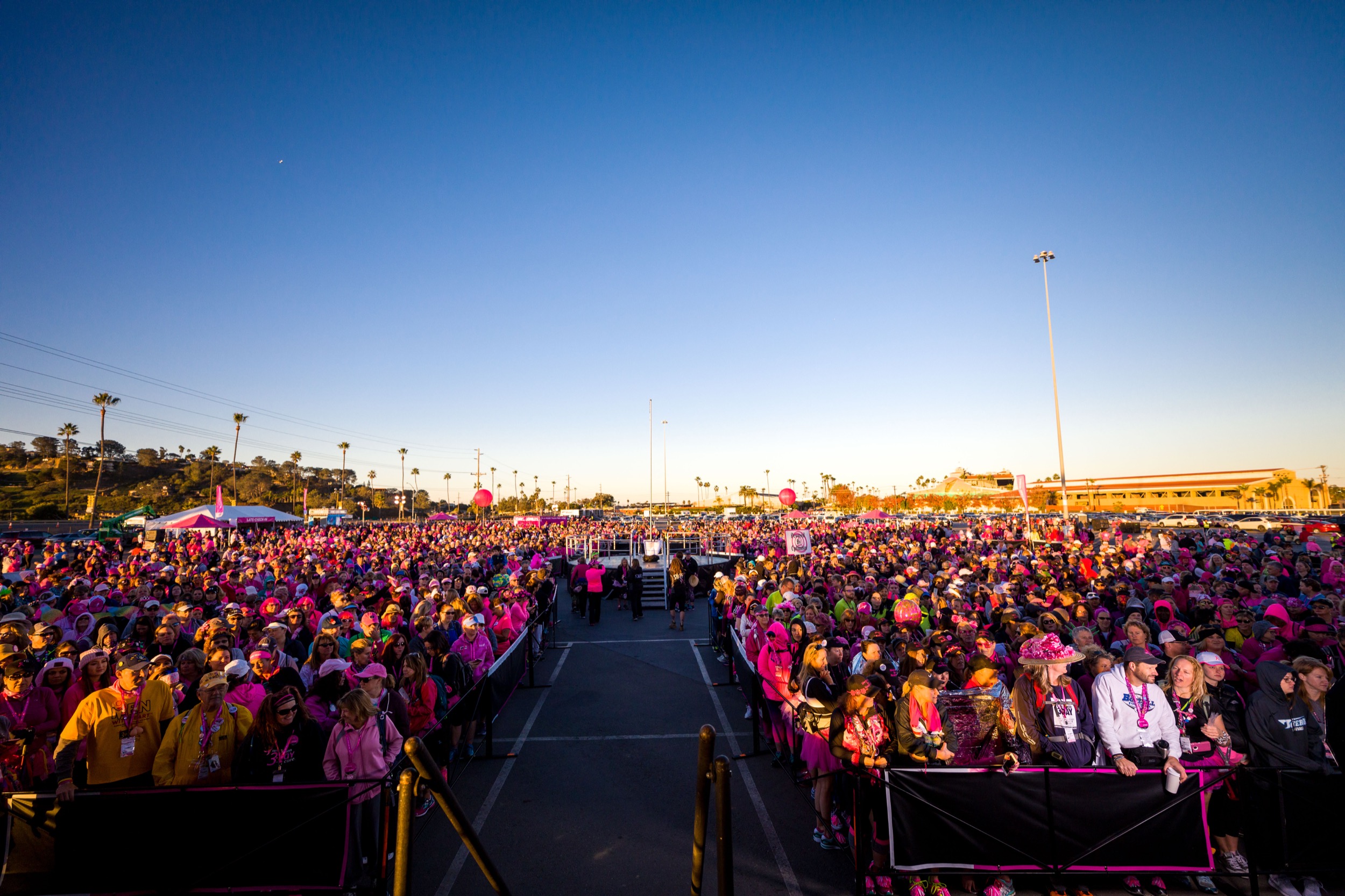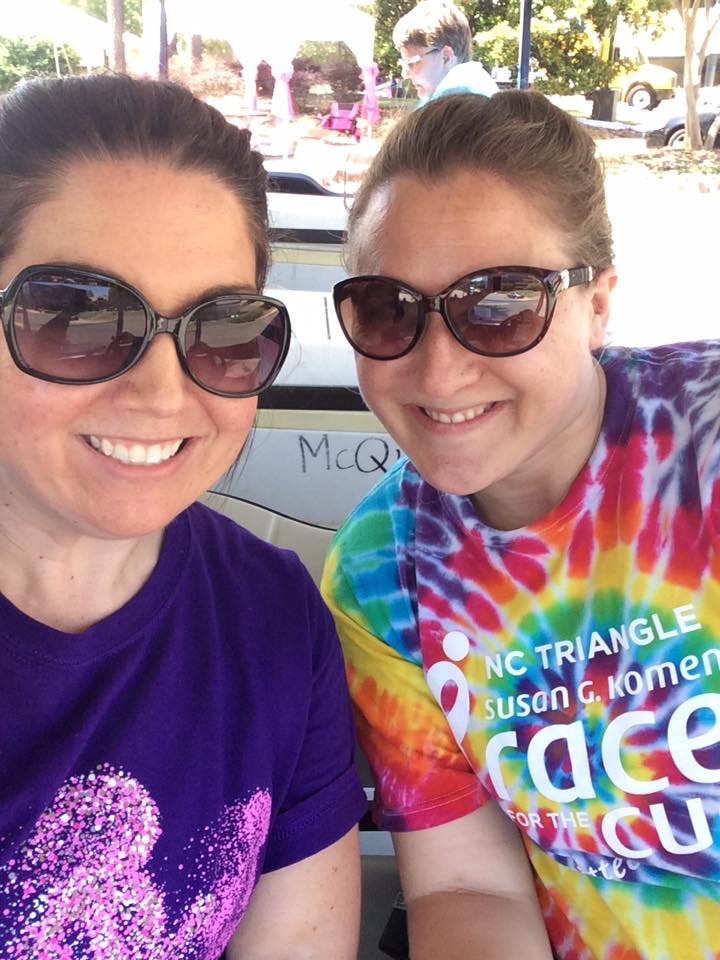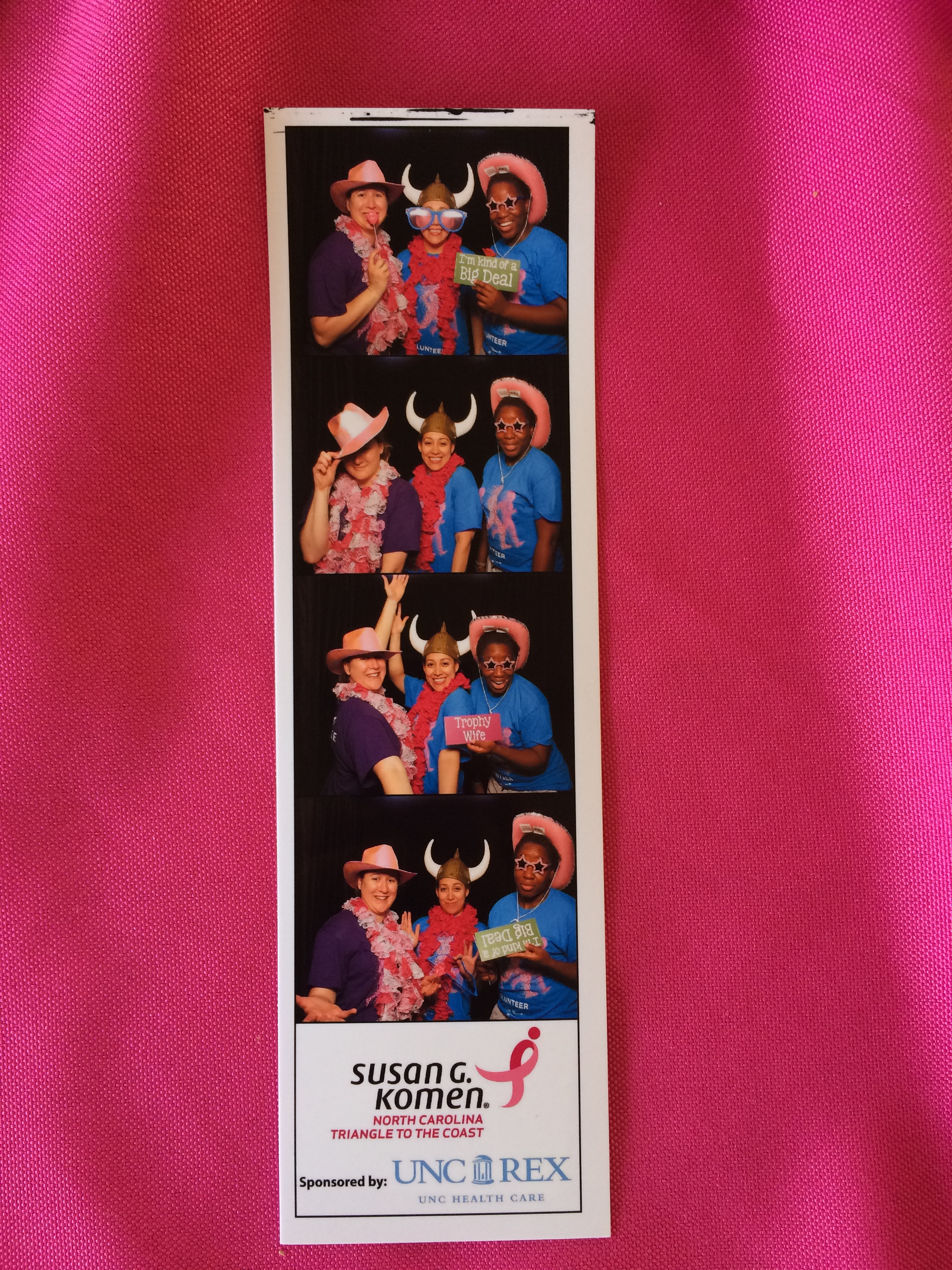
Dr. Vincent
Dedicating his life to finding a cure for breast cancer, Dr. Benjamin Vincent is driven to help Komen meet our Bold Goal of reducing the current number of breast cancer deaths in the U.S. by 50% by 2026. As an Assistant Professor of Medicine, he is working to find the cures for breast cancer through precision medicine and immunotherapy.
In this month’s Sidewalks to Science blog, we will get to know Dr. Vincent a little better.
When I’m not in the lab I…
- Write short stories. If I wasn’t a researcher, I would be an author.
- Enjoy outdoor activities with my wife and two young children.
- Love reading novels by my favorite authors, Fyodor Dostoevsky, Jorge Luis Borges, and many others.

Dr. Vincent and his family
What I do… pursue the cures for breast cancer through immunotherapy
My lab focuses on discovering techniques to help the immune system recognize and attack breast cancer cells in ways that help the immune system fight, and then long-term remember how to fight, breast cancer. The challenge for oncologists is that just as each breast cancer patient is a different person, each breast cancer itself is different, presenting different possible targets for the immune system to recognize. In addition, different tumors use different defense techniques for suppressing the immune system. My Komen-funded project focuses on identifying immune targets and mechanisms of tumor resistance so that we can tailor a treatment strategy for each breast cancer patient.
Our goal with this treatment approach is to yield better immune response and more cures than the one-size fits all approach.
Breast cancer is…personal to me and my family
Two of my aunts are survivors and my mother is considered high risk. She has had discussions with her physician about what breast cancer screening tests are best for her due to the high risk and family history.
Working with patients…is inspirational and insightful
I pursued oncology during my medical school oncology rotation because I was inspired by breast cancer patients – women who showed impressive grace and generosity while suffering from metastatic disease. Working with these women was highly motivating for me to pursue breast cancer cures in the research lab.
I am also fortunate to work with patient advocate Dr. Susan Palmer in developing my research plan and communicating the impact of my work. After meeting with her, we see our work as not just about solving intellectual puzzles, but also extending and improving the lives of advanced and metastatic breast cancer patients. We are excited to work with patients and involve them in our research. I hope our relationship will continue to strengthen, and I expect her insights to be vital for designing and communicating future research.
People with breast cancer should…know their bodies well.
Know when to ask for help and support. You are not in this alone and there are likely friends, family members, health care providers, and community support services who would be excited to help if they can. If something is wrong, please don’t be silent, you are your best advocate. Let someone know they can help!

Dr. Vincent with his lab colleagues
Komen is…connecting patients to researchers
We are developing a program to foster interactions between breast cancer researchers and breast cancer patients – something informal where we can all just communicate our work and experiences. My co-workers, colleagues, and I are excited to participate in the Komen Triangle Race for the Cure in Durham each year as well.
Quote
“You are 100% NOT defined by your cancer, no matter what stage you are in your cancer journey. You are your own person and deserve to live as well as you can according to your values and goals!”
 “As a kid and even now an adult, I think I’ve always seen my father as invincible; like nothing could stop him,” said Bridgette, a first-time Michigan 3-Day walker. “He’s super handy and can fix just about anything around the house (although the joke in the family is that it might lean a little to left when’s done with it). He’s hard working and always ready to lend a hand. Even as an adult, he checks in on me as like I am still his little daughter. I love my dad, and I know he loves me,” she said. That love is just one of the reasons she’ll be taking on the Michigan 3-Day this year; and the other is that Bridgette’s dad is a breast cancer survivor.
“As a kid and even now an adult, I think I’ve always seen my father as invincible; like nothing could stop him,” said Bridgette, a first-time Michigan 3-Day walker. “He’s super handy and can fix just about anything around the house (although the joke in the family is that it might lean a little to left when’s done with it). He’s hard working and always ready to lend a hand. Even as an adult, he checks in on me as like I am still his little daughter. I love my dad, and I know he loves me,” she said. That love is just one of the reasons she’ll be taking on the Michigan 3-Day this year; and the other is that Bridgette’s dad is a breast cancer survivor.
